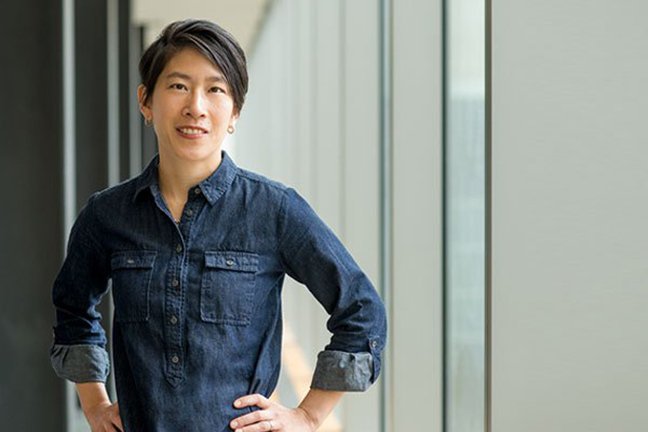Professor Teri Odom
Professor Teri Odom
Department of Chemistry
Northwestern University
Host: Professor Renee Frontiera
Resolving Nano-bio Interactions at the Single-Nanoconstruct Level
Nanotechnology offers unique strategies for minimally invasive and localized approaches to diagnose and treat diseases. For example, nanoparticles have been explored in a range of applications, including as drug delivery vehicles, imaging probes, and therapeutic agents. Although increased therapeutic efficacy has been realized, direct visualization of how engineered nanoparticles interact with specific organelles or cellular components has been limited. Such interactions will have implications for fundamentals in cancer biology as well as in the design of translational therapeutic agents. This talk will describe how drug-loaded gold nanostars can behave as optical probes to interrogate how therapeutic nanoconstructs interact with cells at the nanoscale. We will focus on model cancer cell systems that can be used to visualize how gold nanostar nanoconstructs target cells, rotate and translate on the plasma membrane, are endocytosed, and are trafficked intracellularly. Finally, we will discuss how the different motions provide insight into whether the therapeutic nanoconstructs will retain their targeting abilities.
Professor Odom
Professor Teri Odom's group focuses on “making precious metals more precious” by controlling the size and shape of noble metals at the nanoscale. Her group's strategies include the development of new nanofabrication tools to create three-dimensional architectures with structural function that can span three-orders of magnitude simultaneously. We are also pursuing simple and scalable approaches to synthesize anisotropic particles. To understand the details of how light interacts with these structures, they use modeling to calculate the optical properties of single particles as well as the collective effects of assemblies of nanoparticles. Applications of these unique materials include nanomedicine, photovoltaics, sensing, and imaging.
Professor Odom is the Charles E. and Emma H. Morrison Professor of Chemistry, chair of the Department of Chemistry, and professor of Materials Science and Engineering at Northwestern University. She is editor-in-chief or Nano Letters. She earned her bachelor's degree in chemistry from Stanford University, her doctorate in chemical physics from Harvard University, and was a post-doctoral researcher at Harvard.
Albert J. Moscowitz Memorial Lectureship
The Albert J. Moscowitz Memorial Lectureship in Chemistry was established by friends and colleagues of Professor Albert J. Moscowitz (1929-1996) to honor his many contributions to molecular spectroscopy. He was known for his research on the interpretation of optical rotation and circular dichroism spectra in terms of the structures of chiral molecules. In collaboration with colleagues in the medical sciences, he developed important applications of his methods to biomedical systems. Throughout his career, Moscowitz held numerous visiting professorships at other universities, and served on the editorial boards of the leading journals in chemical physics. His work was honored by election as Foreign Member of the Danish Royal Academy of Sciences and Letters, and as a Fellow of the American Physical Society.
Past Albert J. Moscowitz lecturers include Bruce Berne, Columbia University (2000), R. Stephen Berry, University of Chicago (1998), Jean-Luc Bredas, University of Arizona (2002), Mike Duncan, University of Georgia (2010), Crim F. Fleming, University of Wisconsin (2006), C. Daniel Frisbie, University of Minnesota (1999), Mike Frisch, Gaussian (2008), Anthony Legon, University of Bristol (2013), Marsha Lester, University of Pennsylvania (2011), Frank Neese, Max-Planck Institute for Chemical Energy Conversion (2014), Stuart Rice, University of Chicago (2000), Peter Rossky, University of Chicago (2006), Giacinto Scoles, University of Princeton (2004), Benjamin Schwartz, University of California, Los Angeles (2007), Hirata So, University of Illinois, Urbana-Champaign (2011), Walter Thiel, Max Plank Institute, Muelhiem (2002), Zhen-Gang Wang, CalTech (2014), Georg Kresse, University of Vienna (2016), Emily A. Carter, Princeton University (2017), Martin Moskovits, University of California, Santa Barbara (2018), and Veronique Van Speybroeck, Ghent University (2019).
